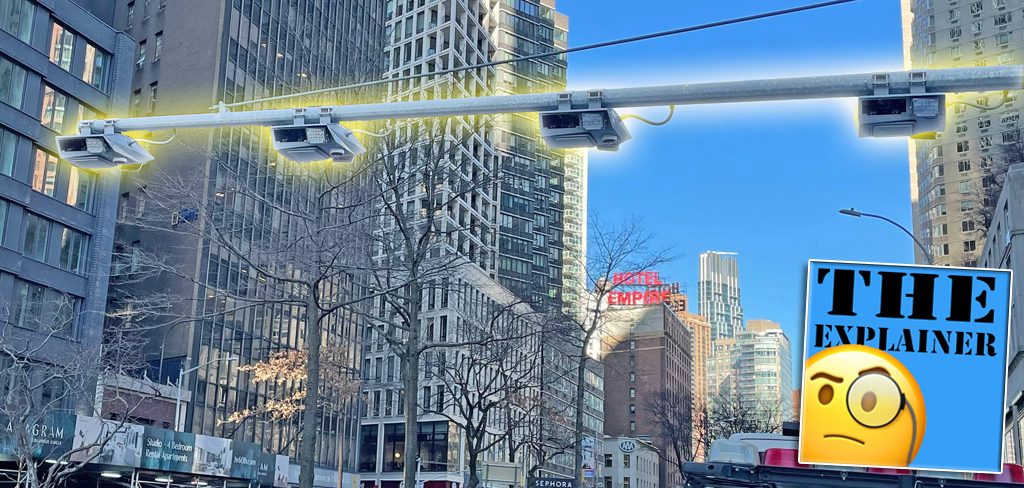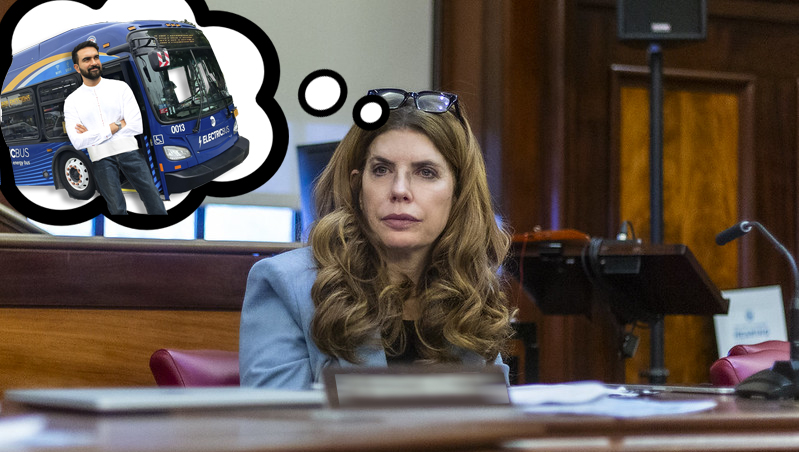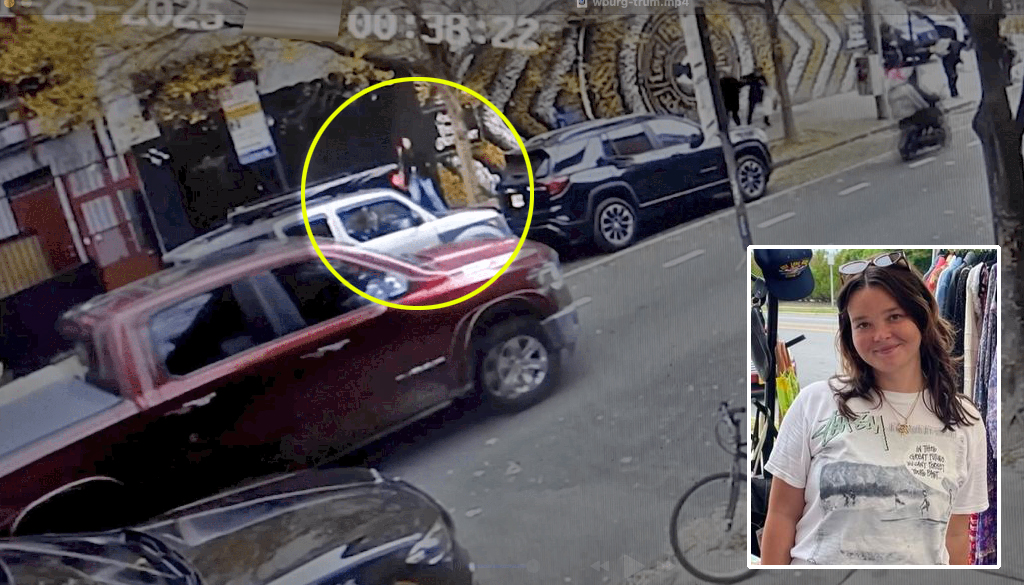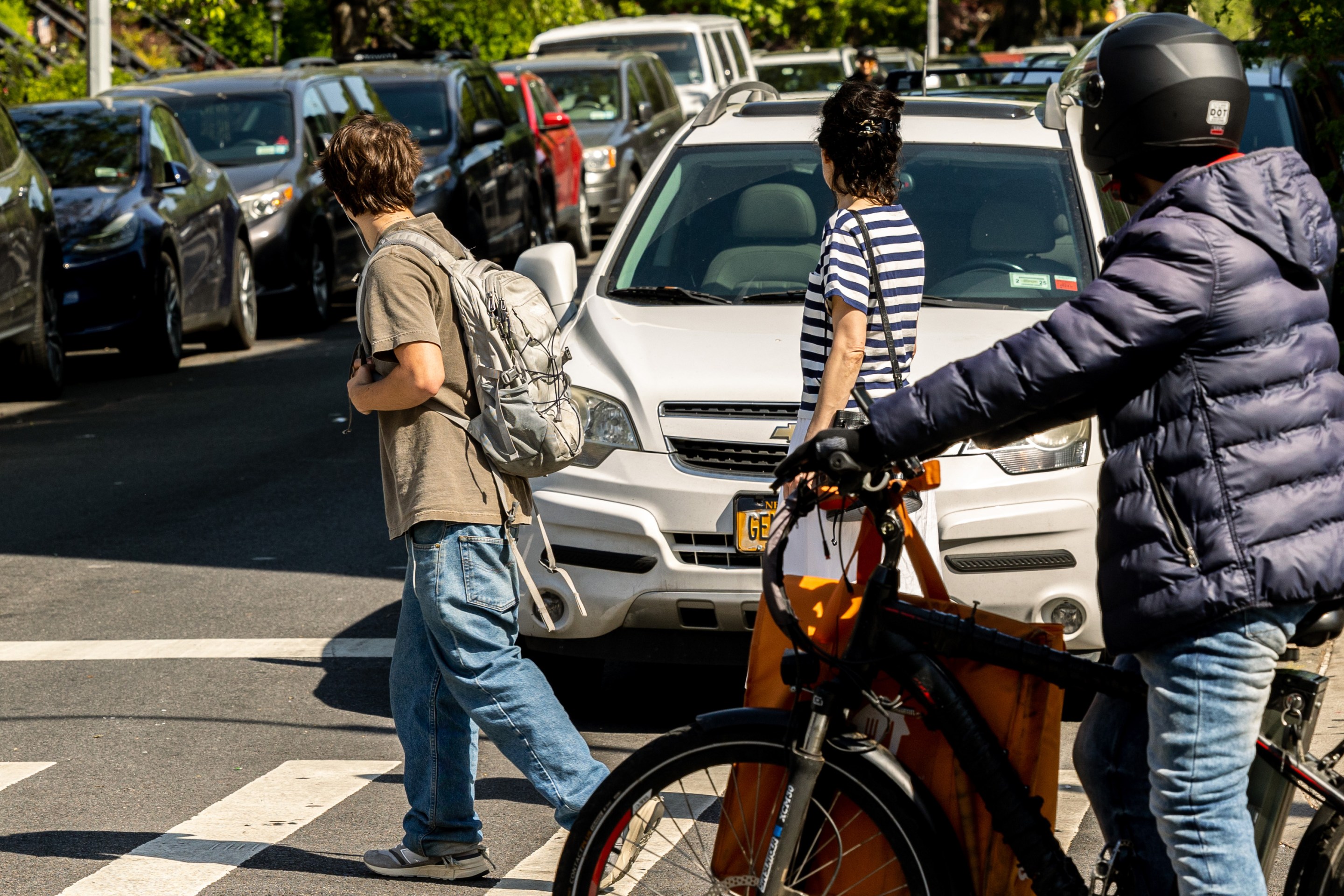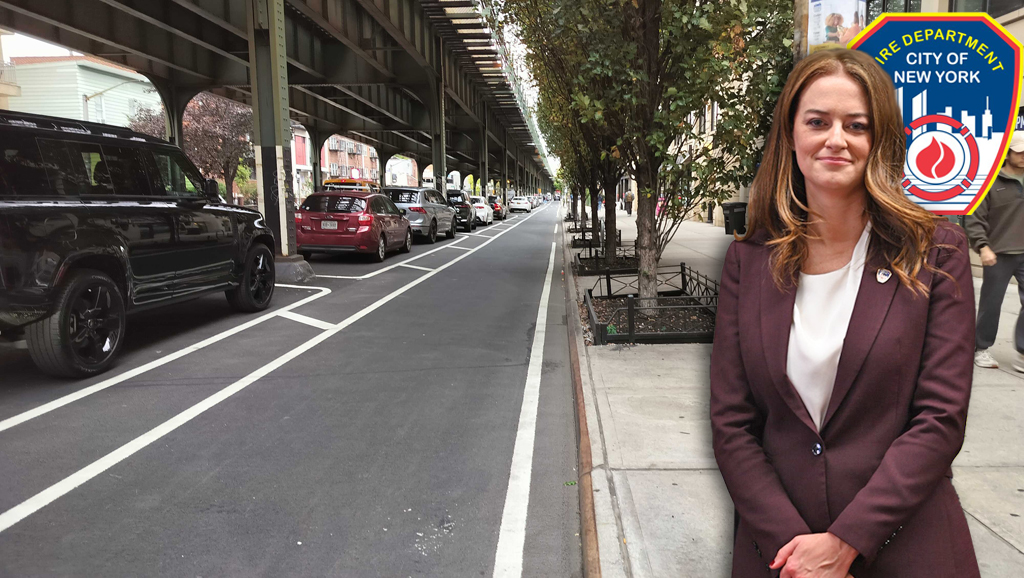Certain government vehicles will be exempt from paying the congestion pricing toll, but which ones? And how? The answer is "Not all of them" and "There's an app(lication) for that."
When congestion pricing begins on June 30, basically everyone will pay. Buses and disabled New Yorkers driving or being driven in a qualified vehicle (i.e. it's this person's primary vehicle) will get exemptions, and New Yorkers living in lower Manhattan who make under $60,000 per year can get a tax credit for the toll.
But government agencies that want certain vehicles exempt will need to ask the MTA permission to get out of the toll. The agency's application for said exemptions was posted on April 26.
So who can seek an exemption?
Two types of government-owned vehicles are exempt from the toll: emergency vehicles and "specialized" vehicles. Emergency vehicles are easy: ambulances, police cars, fire trucks and the like, but also blood delivery vehicles, civil defense vehicles and vehicles that respond to environmental or hazardous material emergencies. Such vehicles are defined under New York State's vehicle and traffic law.
The other type is where there will inevitably be cheats: the Specialized Government-Owned Vehicle Exemption (SGOVE, rhymes with "no love") extends to any vehicle "specifically designed to perform public works other than general transportation, and directly engaged in a core agency purpose." [Emphasis ours.]
In theory, the definitions and specifics in the SGOVE policy should mean that city employees using "take-home cars" must pay the toll. But plenty of non-emergency vehicles will be exempt under SGOVE.
For example, a Sanitation inspector driving a car behind an already exempt garbage truck could get out of the congestion pricing toll — if the agency in question applies for and is granted an exemption for that vehicle.
How will this play out?
Any vehicle granted free passage will get an EZ-Pass transponder, so governments also need to be signed up with a business application, which is the way governments currently pay tolls through E-ZPass.
For the emergency vehicle exemption, any state, municipal or federal government agency will need to note the category of vehicle it's trying to exempt and share proof that a vehicle is registered with an emergency services department or as a specific emergency vehicle.
For the SGOVE, the form is slightly less detailed, but it still requires the agency to provide details about each and every car it wants exempted:
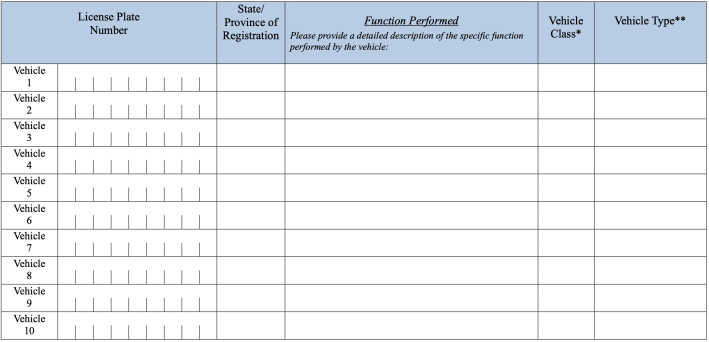
But in both instances, a federal, state or municipal agency that wants vehicle exemptions needs to include the following information for each vehicle: the license plate, the state where it's registered, the vehicle class and the vehicle type.
For the SGVOE, the agency will also have to provide a description of the specific function performed by a given vehicle, whether it's a car or van (class 1), a "single-unit truck" (class 2), a big truck (class 3) or a bus (class 4). (A detailed chart is below; note that motorcycles, which are class 5, are not eligible for exemptions):
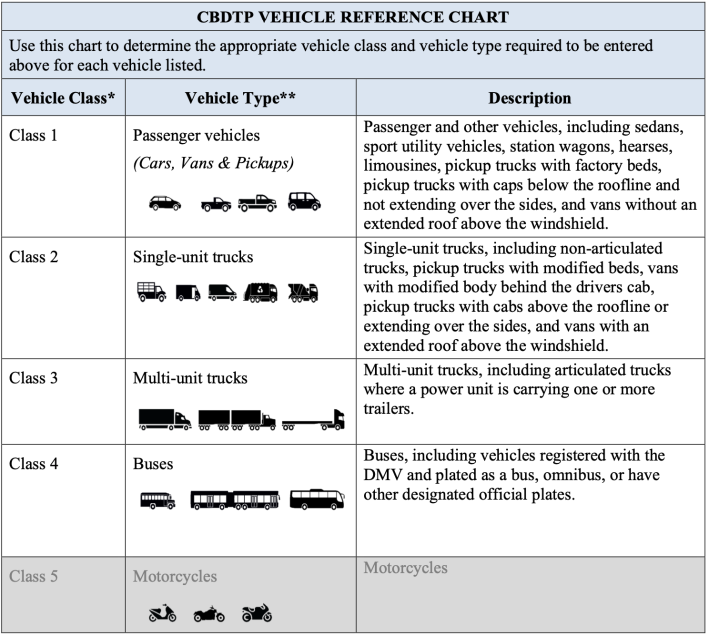
Watchdogs say that it's good the MTA is in charge of the form, but that it still may be so vague as to be overwhelming for the agency.
"The 'specific function' piece is the problem, it's not very clear," said Reinvent Albany Senior Policy Advisor Rachael Fauss. "How many of these applications will the MTA get? It's a lot of vetting and work for them to do. Is somebody going to be personally reviewing every single vehicle function or justification?"
Have we learned nothing from the lower Manhattan placard census?
Well, there's a key difference between the proliferation of real and fake placards that choke downtown Manhattan and the government vehicle exemptions to congestion pricing. In the case of placards and the city's placard elite, the parking privileges are part of a collectively bargained situation with the government of New York City, and the people tasked with determining whether their usage is aboveboard are more than happy to turn a blind eye.
But New York City isn't in charge of congestion pricing, which means the MTA is also in charge of deciding which vehicles get the requested exemptions and which ones don't. It's not a simple matter of a government submitting a list and the MTA agreeing to it, the agency specifically notes that requests can be rejected.
"The incentives are better in that the MTA will be making a determination. It will be more consistent, too, because if each agency is submitting what they want on their own, it's different than if the MTA is consistently looking at it and deciding what type of justification is allowed," said Fauss.
And not only does the MTA have a vested interest in collecting every penny available to it, the toll itself isn't functioning within a brotherhood of scamming that allows a construction vest to act as a "free parking" permit. The cold, unfeeling eye of a congestion pricing scanner does not care if your sister works for the Fire Department or if you're a court officer, the only way out of paying is defacing your license plate, which is increasingly looked down upon by the government.
What if a supervisor just snags a transponder for their personal car?
According to the MTA, it's not as simple as that.
"Vehicles that are exempt as specialized government vehicles will be assigned an E-ZPass tag that is linked to an assigned license plate," said MTA spokesperson Aaron Donovan. "A specialized government vehicle E-ZPass tag can’t be used in a personal vehicle because the E-ZPass tag won’t match the personal vehicle’s license plate."
But what if a supervisor just takes home a legitimately exempted car? Stay tuned.
Can the city simply submit exemptions for every vehicle?
Sure, if Mayor Adams wants to do that he can. But as mentioned above, the MTA is in charge of dispensing the exemptions. At press time, the MTA says that its received two applications for the SGOVE and seven applications for the emergency vehicle exemption. But the agency says that the exact number of vehicles included in those applications is not available.
The MTA has said it will be transparent about the number and types of vehicles that get either exemption, but Donovan said that the MTA hasn't decided the exact type of information the agency will include in its open data to reveal which government vehicles are granted exemptions.
The open data is what will make or break the program though, since it will also allow irritants like reporters and data nerds to find any scammers trying to exploit the exemption.
"The more eyes on it, the better, because then I think it'll be more obvious where there are any issues, if there are any," said Fauss. "The MTA is going to have to police this, The onus is on them to release the information to the public so that it's very clear what they're doing, and which vehicles and how many get this exemption."
One other thing that could cut down on scams: Any exempted vehicle will need "annual recertification ... based on the date the plan was added to the customer’s E-ZPass NY account." (Then again, city agency placards have expiration dates, too, but they pop up all the time.)
Is Donald Trump exempt from paying?
Perhaps you have seen former President Trump's SUV motorcade — with federal plates — driving to or from court in lower Manhattan, or maybe you just saw this tweet from New York Times reporter Michael Gold the other day:
do we know if presidential motorcades will have to pay the congestion pricing fees
— Michael Gold (@migold) May 7, 2024
"Generally, government vehicles are subject to tolls," said Donovan. In practice, that means that the Treasury Department (which contains the Secret Service) would need to do the same application process as any other government agency trying to pay for its portion of congestion.
The Secret Service would have to make the case to the MTA that the SUVs in which it ferries the president and other celebrity perps are doing more than proving "general transportation." The department could try to make the case that each of its SUV is the type from White House Down that has a fully-loaded M134 Minigun in it, but the MTA could still decide those vehicles are simply general transportation.
As for other, local government officials, the MTA says that vehicles that are used for general transportation for government officials won't get an exemption, which means that a car taking Department of Finance Commissioner Preston Niblack into Lower Manhattan has to pay.
On the other hand, if the mayor is getting driven in a law enforcement vehicle, an agency spokesperson said he could avoid the toll if that vehicle is already exempted under the Emergency Vehicle Exemption Plan.
So prepare to start keeping tabs on whether the mayor shows up everywhere in a police car starting on June 30.
Clarification: An earlier version of this story misstated the manner in which the MTA announced the SGOVE program. The program was announced in a normal press release.
